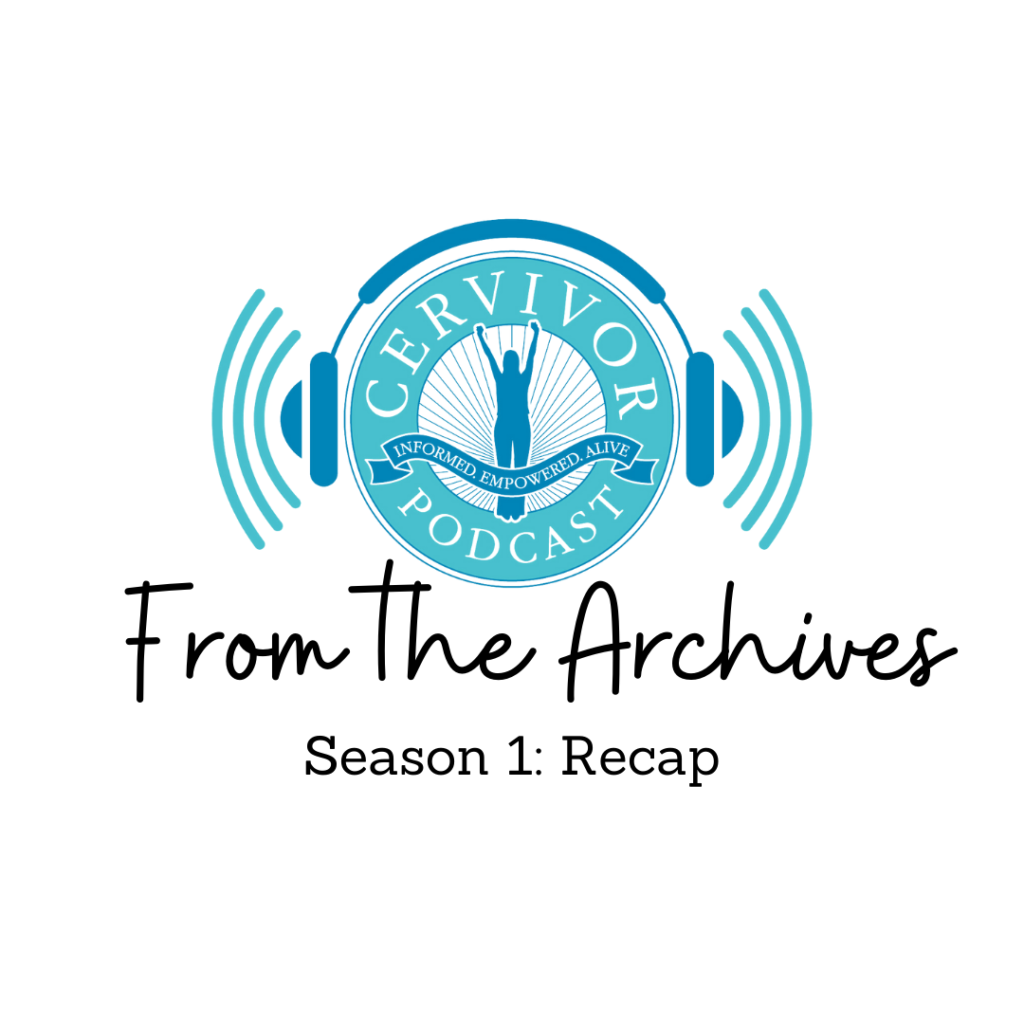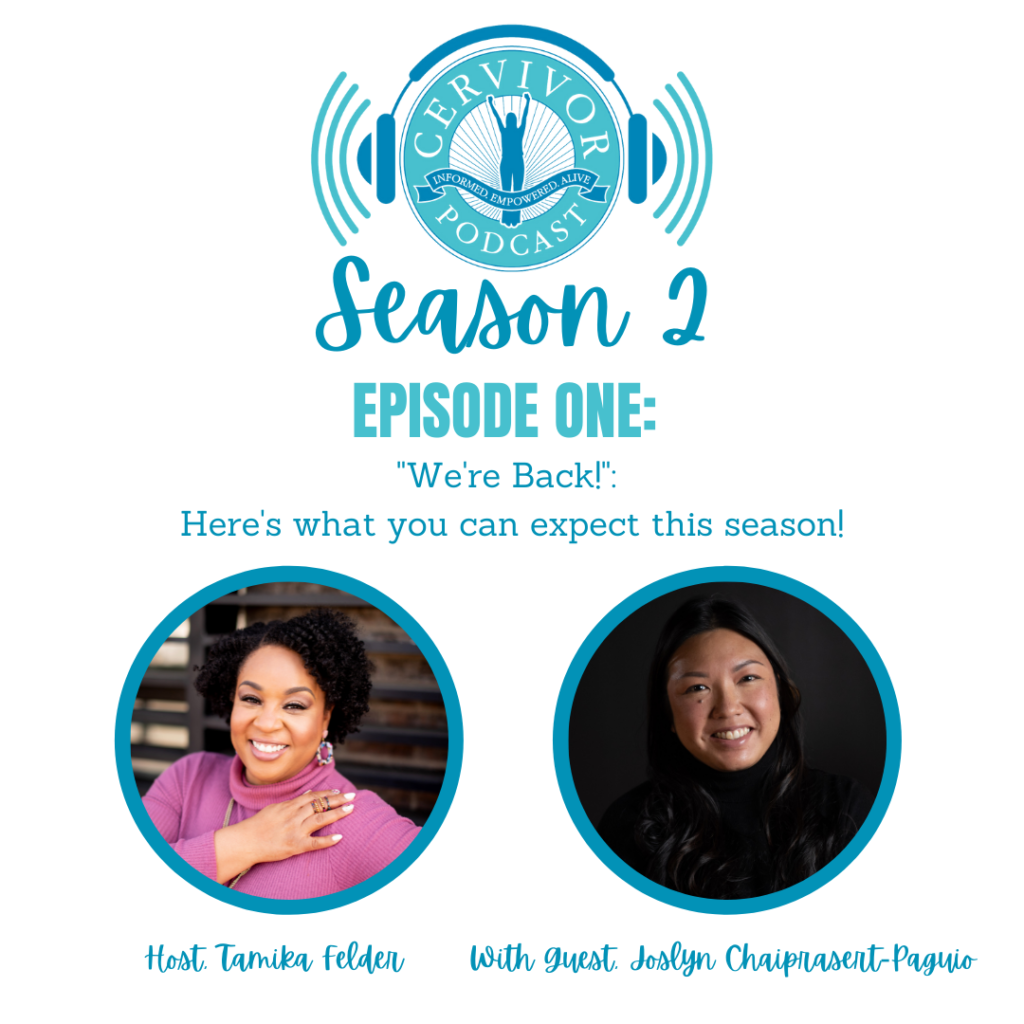We are just hours from closing the door on 2023 and jumping into 2024 with a jam-packed Cervical Cancer Awareness Month (CCAM)! Can we count on you to join us? But first, let’s check out some of the impact you have helped us achieve in 2023. Please take a moment to read Founder and Chief Visionary, Tamika Felder’s special newsletter and watch the video below.
Beyond this video, the Cervivor Community has…
- Hosted in-person events like our Cervical Cancer Summit in New York City, kicking off with Founder and Chief Visionary, Tamika Felder, ringing the closing bell at Nasdaq; Hosting the Communities of Color Retreat in Washington, D.C., and we headed to the Pacific Northwest for Cervivor School Seattle where we celebrated 21 new graduates and awarded 5 new Cervivor Champions!
- The Comfort Care & Compassion Program served over 300 individuals impacted by cervical cancer.
- Inspired, supported, and empowered hundreds of cervical cancer patients and survivors from around the world to share their stories.
- The addition of a Cervivor staff member, Kimberly Williams, as the Chief Diversity Equity and Inclusion Officer, was a position to make it clear on our commitment for health equity and closing the disparity gaps. Cervivor Noir,Cervivor Asian and Pacific Islanders, Cervivor Africa, Cervivor Caribbean, and a group for LGBTQIA+ Survivorswere developed, and the expansion of our private groups to include more safe spaces for necessary conversations and support.
- We continued to host many meaningful conversations through our monthly Creating Connections support group held every second Tuesday.
- Season 3 of the Cervivor Podcast was launched in January with Joslyn Paguio returning as the host. The podcast has now reached listeners in 50 countries! Be sure to follow Cervivor Podcast on your preferred listening platform and check out the last episode of Season 3 featuring Team Cervivor here.
- Virtual events were elevated by the creation of Below the Belt Conversations, HPV Cancer Survivors Connect to strengthen support beyond cervical cancer so that no one feels alone from any HPV-related cancer, and a virtual Advocacy Retreat for Communities of Color allowing several women from Africa and the Caribbean to join the discussion.
- Continued with daily motivation, fit tips, and monthly challenges powered by Survivor Slimdown to over 452 cancer survivors in our private Facebook community. A huge thank you to both Hearts Bio and the University of North Carolina Weight Research Program for their continuous partnerships.
- In addition to using our voices to participate in various research studies, raising awareness in media interviews, and guiding new legislation, we gained the opportunity to serve as patient advocates for various committees and task forces through the White House’s Cancer Moonshot, President’s Cancer Panel, National HPV Vaccination Roundtable, National Cancer Institute (NCI), National Institute of Health (NIH), the National Cervical Cancer Roundtable, and the World Health Organization.
- Founder and Chief Visionary, Tamika Felder, and Chief Diversity Equity and Inclusion Officer, Kimberly Williams were recognized by the American Cancer Society National HPV Vaccination Roundtable for Mentor/Mentee and Lived Experience Ambassador awards.
- We became a member of the Union for International Cancer Control to further our commitment to our global advocacy work.
- Hosted an intern from the historic HBCU Claflin University, Summer Edmond, who is majoring in Public Relations and was part of our strategic planning behind the scenes.
- And we celebrated the #CervivorBaby’s first birthday! (That year went by pretty fast!)
As we reflect on the accomplishments of 2023, we are profoundly grateful for the generosity that has enabled us to make significant strides in achieving our mission – to our monthly donors, our one-time donors, and our incredible fundraising volunteers, we appreciate your support always. We would like to thank our generous sponsors who have helped support us through 2023: Hologic, Seagen, Genentech, Genmab, Roche, St. Jude HPV Cancer Prevention Program, and Regeneron.
And as we transition into 2024, Cervivor, Inc. remains dedicated to its commitment to ending cervical cancer. Our community has been the driving force behind our achievements, and we recognize that none of this would be possible without your ongoing support and generosity. We wish to remind you that there is still time to make a tax-deductible year-end contribution. Your support will contribute to furthering the initiatives that have represented our efforts in 2023.
We appreciate your consideration and look forward to your continued support as we strive to make a meaningful difference in the mission to end cervical cancer.
With Gratitude,
Tamika Felder, Founder & Chief Visionary
Morgan Newman, MSW, Community Engagement Liaison
Kimberly Williams, MHCM, Chief Diversity Equity & Inclusion Officer
Team Cervivor

